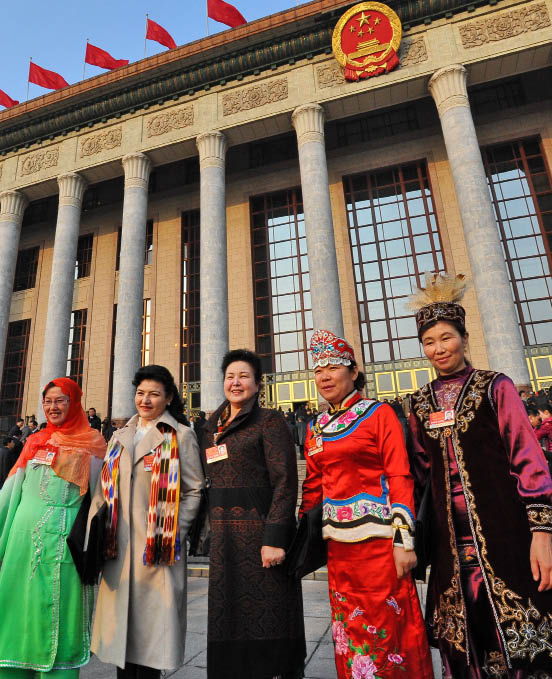By ZHANG WEIWEI
THE massive population, vast territory and rich cultural heritage formed during the course of China’s long history all prescribe its need for a political pattern distinct from that of other countries. The main tenets defining the legitimacy of each administration throughout Chinese history have been the ability to administrate issues concerning people’s livelihood, handle natural and man-inflicted disasters, manage the nation’s scale of population, and defend territorial sovereignty.
China has developed over millennia a distinct political culture. The Chinese people take a holistic view of politics wherein the emphasis is on maintaining national stability and prosperity. A glance at China’s history confirms that every golden age is attributable to a strong and open-minded government.
That the legitimacy of state power is the result of competition among multiple political parties is a superficial argument. Political parties in China differ from the Western concept, as the ruling party, in essence, upholds the legacy of the Confucian ruling group that defined China’s politics in earlier times. Rather than comprising rival interest groups, therefore, it is instead a united coalition. Given China’s particular situation, the multi-party system is actually detrimental. This bitter lesson is still fresh in recent memory. The many political groups that contended after the 1911 Revolution led to sheer chaos that brought the country to the brink of fragmentation.
 |
| Regional autonomy for ethnic minorities is a key component of China’s political system. |
Historical legitimacy has been the most commonplace in human history, and constitutes the foundation of state rule in China. The tradition of selecting the most virtuous and capable to govern the country according to public opinion is the hallmark of such legitimacy. It embodies Chinese people's political wisdom, the core competitiveness of the so-called "Chinese model" and the reason why China has been a world power for the better part of world history.
Extraordinary inclusiveness is another trait of China’s political system. China’s inclusive multiplex administrative mechanism is a continuation of earlier times, when vassal states and local administrations complemented the central authority. The present-day paradigm consists of the “one country, two systems” principle and regional autonomy. Although under different political systems, China’s mainland, Hong Kong and Macao maintain close economic ties, and the Cross-Strait Economic Cooperation Framework Agreement between the mainland and Taiwan has also taken effect.
Heterogeneity has also been a feature of China's opening-up and reform drive. Certain regions have been allowed to adopt new policies that have galvanized economic development and inspired the rest of the nation, thus proving an innovative and effective gambit.
Chinese political culture centers on such overarching tenets as “managing the country as one would play the game of go (where each move is part of an entire strategy),” and “all parties are obliged to offer help if one region is in trouble.” A centralized government is at the helm of China, but each reform it undertakes starts on a local basis and is promoted nationwide only when seen to be tried and true. Indigenous conditions are paramount when introducing new policies at local levels, thus enabling healthy competition as well as complementation among the economies of different regions. This is evident in the differing growth patterns of Shanghai, Jiangsu and Zhejiang even though all three are within the Yangtze River Delta. The role of the three pillars of modern market economy – government, market and the public – also varies across the nation, as does the economic structure. All facets of China in fact embody the dualistic relationship of competition and cooperation that contribute to the creation of the “China miracle.”
In sum, China has looked to the West to build the strong, modern government mechanism that it has spliced with the legacy of its political culture. This combination has protected the country from such threats as populism, short-termism and legalism that plague Western systems of democracy. I am confident that the world will soon become more aware of the positive influence of the Chinese people’s political wisdom on the future of humankind.
ZHANG WEIWEI is a senior research fellow of the Equinox (Chunqiu) Institute, guest professor at Fudan University, professor of international relations at the Geneva School of Diplomacy and senior research fellow at the Centre for Asian Studies, Geneva.

